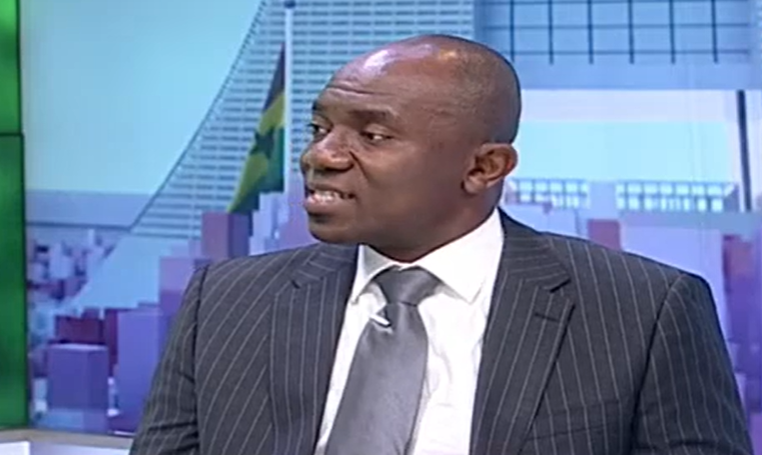Financial markets showed signs of stabilizing after being buffetted this week by a surge in expectations for a U.S. interest-rate increase. Global stocks rebounded from a six-week low as oil rallied and the dollar retreated against higher-yielding currencies.
Raw-materials producers and energy companies led gains on the MSCI All Country World Index, which was headed for a fourth weekly loss. European shares rose by the most in a month and U.S. stock index futures advanced. Crude rose to a seven-month high and copper rebounded from levels last seen in February. New Zealand’s dollar led gains against the greenback, which strengthened this week against all but one of its 16 major counterparts. The yield on 10-year U.S. Treasuries was little changed, still set for the biggest weekly jump in six months.
Some $900 billion was wiped off the value of global shares over the last three days as traders stepped up bets on a June rate increase in the U.S., spurred by comments from Fed officials, minutes of the last policy meeting and quickening inflation. While the American economy shows signs of being able to weather higher borrowing costs, the outlook for global growth has been worsening and finance chiefs from the Group of Seven nations are meeting in Japan May 20-21 to discuss ways to tackle this.
“Everyone just has to bite the bullet and realise that rates have to go up,” said James Audiss, Sydney-based senior investment adviser at Shaw and Partners, which manages about A$10 billion ($7.2 billion). “Earnings are coming out okay, forward guidance wasn’t too bad and the U.S. economy is doing better. That’s all supportive for the market.”
Tsai Ing-wen, Taiwan’s first female president, was sworn in Friday and delivered her inaugural address as the island’s leader. U.S. data are forecast to show sales of previously owned homes increase in April for a second month, while current-account figures for the euro area are also scheduled.
Stocks
The Stoxx Europe 600 Index jumped 1 percent as of 8:17 a.m. London time, putting the gauge up 0.9 percent for the week. Futures on the S&P 500 climbed 0.3 percent after the benchmark’s 0.4 percent drop on Thursday saw it erase gains for 2016.
The MSCI Asia Pacific Index added 0.5 percent, rebounding from a six-week low. Hong Kong’s Hang Seng Index gained 1.1 percent, while benchmarks in China and Japan rose. The Shanghai Composite Index still lost ground for the fifth week in a row, its longest losing streak since 2012.
Taiwan’s Taiex climbed 0.4 percent, poised for its first weekly advance in more than a month. President Tsai said she will seek peaceful ties with China while resisting pressure from Beijing to acknowledge the idea that Taiwan and China are part of a single nation.
Papua New Guinea oil and gas producer Oil Search Ltd. lost 1.2 percent in Sydney after it agreed to buy InterOil Corp. in a $2.2 billion deal. The majority of the acquired assets will be sold on to Paris-based Total SA and the proceeds will fund about 60 percent of the InterOil purchase. Total’s shares advanced 1.7 percent.
Commodities
Crude oil rose 0.8 percent to $48.53 a barrel in New York, headed for a weekly advance of about 5 percent. Prices were boosted this week as data showed U.S.output slid to the lowest since September 2014 and wildfires in Canada expanded.
“We’ve got U.S. demand picking up and combining with bullish supply news filtering through the market,” said Jonathan Barratt, the chief investment officer at Ayers Alliance Securities in Sydney. “Unless there is a clear new fundamental reason to buy oil, I think $50 is a hard psychological level to break through.”
Copper rose 0.2 percent in London, while nickel rebounded from a six-week low. Gold was headed for a third weekly decline, its longest losing streak of the year.
Soybeans in Chicago were set for a sixth weekly advance, the longest run of gains since 2013. The U.S. Department of Agriculture estimated last week that global inventories will fall 8.1 percent by the end of September next year.
Currencies
The kiwi climbed 0.4 percent as 13 of 16 major currencies made headway against the greenback. The yen weakened 0.2 percent, set for a weekly drop of 1.4 percent.
The Bloomberg Dollar Spot Index retreated from its strongest level since March. The British pound was the only major currency to strengthen against the greenback this week, buoyed by polls indicating that the campaign to keep the U.K. inside the European Union is extending its lead before a referendum next month.
New York Fed chief William Dudley touted on Thursday the prospect of policy tightening at one of the central bank’s next two meetings, while Richmond Fed President Jeffrey Lacker said the case for hiking in June would likely be “very strong.” Minutes of the Fed’s last policy meeting were released on Wednesday and showed officials discussed raising interest rates as early as next month. The odds of a move next month are 28 percent, up from 4 percent a week ago, Fed Funds futures show.
Bonds
U.S. Treasuries were headed for their first weekly loss in a month, with a Bloomberg index that tracks the securities having fallen 0.7 percent over the last four days. The yield on 10-year notes was little changed Friday at 1.85 percent, up 15 basis points from a week ago.
Japan’s 10-year yield fell three basis points to minus 0.105 percent. Overseas investors bought 3.6 trillion yen ($32.7 billion) of the nation’s government bonds in April, the most since August 2007, data showed Friday.
–
Bloomberg





